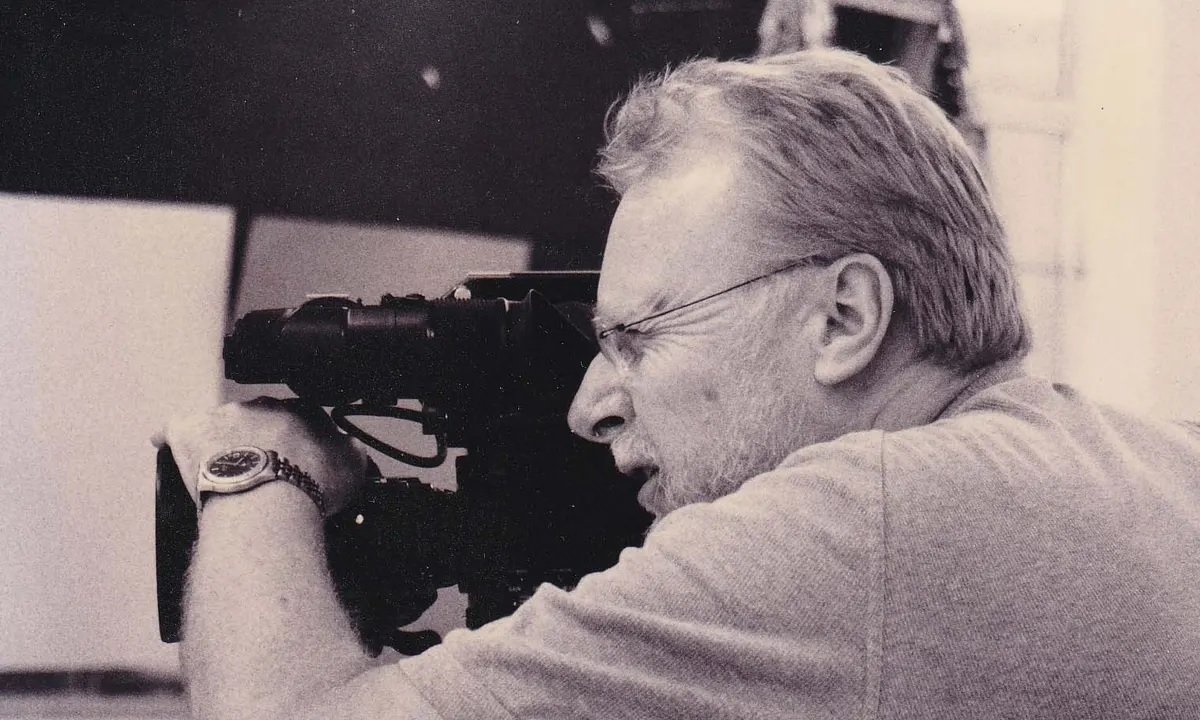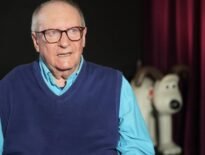Michael Ferguson, who directed four Doctor Who stories in the 1960s and 1970s, has died at the age of 84.
His time directing Doctor Who covered the First, Second, and Third Doctors, starting with The War Machines (1966) with William Hartnell. He then helmed The Seeds of Death (1969) with Patrick Troughton before taking charge of two Jon Pertwee stories: The Ambassadors of Death (1970) and The Claws of Axos (1971).
Even without this notable list of credits, his first connection with Doctor Who would have been enough to secure his place in the programme’s history. Although uncredited, in 1963 he worked as assistant floor manager for the first Dalek story. As he told Gary Russell in Doctor Who Magazine 185 in 1992:
“I actually played the very first Dalek that ever appeared on television – and this is still the only credit of mine that impressed my children at all! It was seen coming around a corner and menacing Jacqueline Hill. I was behind the camera, waving a piece of sucker at her. Further to that, when the first insides of a Dalek were seen, blobbing along the floor in another episode, I consolidated my fame by operating the blob as well!”
Born in New Malden, Surrey, Ferguson trained as an actor but was always keen to direct. After completing the BBC directors’ course, he directed episodes of Compact, the corporation’s early attempt at a soap to rival ITV’s Coronation Street. He would return to continuing drama later in his career to considerable acclaim.
The War Machines represented a change of direction in Doctor Who’s early years, its contemporary Earth setting blazing a trail that would become more established later in the Troughton and Pertwee eras. In the same DWM interview, Ferguson described the extensive location shooting:
“Filming on the London streets was quite interesting. People nowadays get very blasé about filming – they see a camera crew and just drive past, thinking very little of it. In those days the crew were larger – the equipment, lights, camera and all that were much bigger – so it became a more noticeable event.”
Ferguson was one of the programme’s most visually inventive directors, keen to experiment with new techniques and willing to try creative methods to enhance the story. His work on The Seeds of Death was singled out for praise in the recent Doctor Who Magazine Special Edition – Directing Doctor Who. The story includes rapid cutting, unusual camera angles, and use of zoom photography to, as Jonathan Morris writes, “make it as visually arresting and exciting as possible”.
With the onset of colour television and new technical possibilities, Ferguson came into his own when he returned to the programme for The Ambassadors of Death and The Claws of Axos:
“Around the time of The Ambassadors of Death, television was going through a very exciting period. Colour had come in and with it all kinds of capabilities which we now take for granted but then were revolutionary… We had a wonderful time just experimenting to see what we could use these new facilities for and how we could exploit it.”
Doctor Who was just one part of Ferguson’s long television career. He directed episodes of many of the most popular BBC shows including Z Cars, Softly Softly, and wartime drama Colditz, including Tweedledum – arguably the standout episode of the series, which stars Michael Bryant as a prisoner who feigns mental illness in an attempt to be repatriated (look it up on YouTube).
After a spell working for ITV, where he directed and later produced the long-running police series The Bill, Ferguson returned to the BBC, taking charge of EastEnders as executive producer from 1989-1991. He oversaw one of the soap’s most successful eras, introducing the enduring hard men characters Phil and Grant Mitchell. Later, he took charge of hospital drama Casualty (1993-94). His last television credit was as director, again for The Bill, in 2002.
Despite his achievements with these firmly Earth-bound dramas, Michael Ferguson always retained a soft spot for Doctor Who, telling DWM:
“Most television is very limiting and Doctor Who provides an opportunity to let your hair down and do things that no one has ever done before. To create images, worlds, costumes, and all sorts of things that no one has seen or heard of before. It’s all very exciting.”
Michael Ferguson died on 4 October 2021. Our sympathies go to his family and friends.



